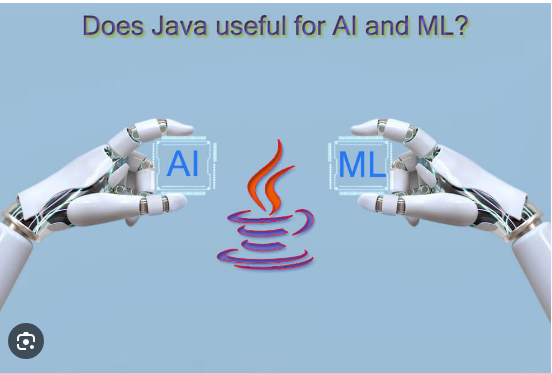Socrative is a widely used educational tool that enables teachers to assess student learning in real time. It is known for its interactive quizzes, instant feedback, and easy accessibility on multiple devices. As artificial intelligence continues to evolve, does socrative use ai many educators and students wonder whether Socrative incorporates AI into its functionalities. In this article, we will explore the features of Socrative, analyze its use of AI, and compare it with AI-powered educational platforms.
Understanding Socrative
Socrative is an online student response system that allows teachers to create quizzes, polls, and exit tickets to gauge student understanding. It was designed to provide a seamless way for educators to collect and analyze student responses instantly does socrative use ai teachers can use Socrative to track student progress and adapt their instructional strategies accordingly.
Some of the key features of Socrative include:
- Real-Time Quizzes: Teachers can create and distribute quizzes to students, with immediate feedback available.
- Instant Feedback: Students receive instant notifications on their performance, which helps in active learning.
- Exit Tickets: Teachers can gauge student understanding at the end of a lesson by using short, formative assessments.
- Space Race: A gamified feature that makes learning competitive and fun.
- Reports and Analytics: Educators can review student performance through detailed reports.
Does Socrative Use AI?
Currently, Socrative does not explicitly market itself as an AI-driven platform. The system primarily operates based on pre-programmed algorithms and does not leverage advanced AI functionalities such as machine learning, natural language processing, or predictive analytics.
However, while Socrative does not use AI in the way platforms like ChatGPT or Google’s AI tutor do, it still offers automated grading and feedback mechanisms. These are rule-based and rely on predefined answer keys rather than AI-driven personalization or deep learning models.
How AI Could Enhance Socrative
If Socrative were to incorporate AI, it could improve its capabilities in several ways:
1. Adaptive Learning
AI-powered Socrative could tailor quizzes and assessments based on a student’s performance. Instead of a static quiz, an AI-driven system could adjust question difficulty dynamically based on real-time responses.
2. Personalized Feedback
AI could provide more detailed feedback beyond just correct or incorrect answers. It could analyze student mistakes and offer explanations, hints, or additional resources to aid comprehension.
3. Predictive Analytics
By using machine learning algorithms, does socrative use ai could predict student performance trends and identify students who might need additional help before they struggle in a course.
4. Natural Language Processing
Instead of relying solely on multiple-choice and short-answer questions, AI-powered NLP could evaluate open-ended responses more effectively. It could assess student explanations, essays, or even spoken responses for comprehension and quality.
5. Automated Content Generation
AI could assist teachers in generating quizzes, assignments, and explanations based on a curriculum or learning objectives. Instead of manually crafting assessments, teachers could leverage AI to create them efficiently.
How Socrative Compares to AI Powered Educational Platforms
Several educational tools incorporate AI to enhance learning. Let’s compare Socrative with some AI-powered platforms:
Khan Academy’s Khanmigo
Khanmigo, Khan Academy’s AI tutor, uses AI to provide personalized tutoring experiences. It engages students in interactive dialogues and helps them understand concepts in a conversational manner. Unlike Socrative, which primarily focuses on quizzes and assessments, Khanmigo actively teaches students.
Quizizz
Quizizz is another popular assessment tool that incorporates AI to provide adaptive learning experiences. It can personalize quizzes based on student performance, which Socrative currently lacks.
Duolingo
In the language learning space, Duolingo utilizes AI for personalized lesson plans and speech recognition to evaluate pronunciation. Socrative does not yet use AI-driven personalization or linguistic analysis.
The Future of Socrative and AI Integration
As AI becomes more prevalent in education, it is possible that Socrative may integrate AI-driven features in the future. Potential AI advancements for Socrative could include:
- AI-based grading for subjective responses
- Chatbot assistance for students
- Enhanced data-driven insights for teachers
- Voice-based interactions for accessibility
If Socrative embraces AI, it could evolve into a more dynamic platform that not only assesses students but also actively enhances their learning experiences.
Conclusion
At past does socrative use ai but at present, Socrative does not use AI in the same way as other educational platforms that leverage machine learning and natural language processing. Its features rely on predefined logic rather than intelligent automation. However, the potential for AI integration in Socrative is immense, and future updates may incorporate more AI-driven capabilities to enhance personalized learning.
For now, educators who seek AI-powered assessment and tutoring solutions may need to look at alternative platforms. Nevertheless, Socrative remains a valuable tool for formative assessments and real-time feedback, making it a strong choice for classrooms worldwide.








Leave feedback about this